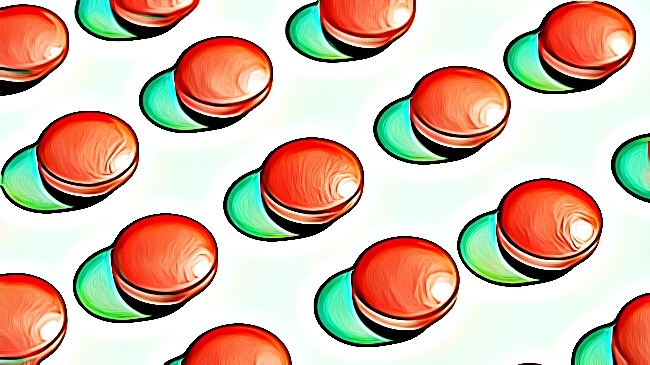When it comes to iron supplements, ferrous gluconate and ferrous sulfate are two of the most commonly prescribed. Iron is crucial for various bodily functions, most notably for the production of hemoglobin – a protein that allows red blood cells to carry oxygen to tissues. But which form of iron is the most effective, and are there significant differences between these two compounds? In this detailed comparison, we’ll delve deep into the distinctions between ferrous gluconate and ferrous sulfate, considering their chemical makeup, absorption rates, efficacy, and potential side effects.
Chemical Composition and Dosage
Ferrous gluconate and ferrous sulfate differ in their chemical composition. Ferrous sulfate is a salt of iron combined with sulfuric acid, while ferrous gluconate is formed by iron and gluconic acid. The percentage of elemental iron in ferrous sulfate is approximately 20%, whereas in ferrous gluconate, it’s closer to 12%. This difference implies that, milligram for milligram, ferrous sulfate provides more elemental iron than ferrous gluconate.
This distinction is crucial when considering the dosage. For example, to achieve an intake of 65mg of elemental iron, one would need to consume 325mg of ferrous sulfate or roughly 540mg of ferrous gluconate.
Absorption and Bioavailability
Iron absorption is a complex process influenced by various factors, including the presence of other dietary components and the individual’s iron status. Generally, the absorption of iron from ferrous salts, like sulfate and gluconate, is higher than from ferric salts. Both ferrous gluconate and ferrous sulfate are recognized for their relatively good bioavailability.
However, some studies have indicated that the absorption rates might slightly favor ferrous sulfate, especially when taken on an empty stomach. That said, the differences are not so stark as to make one vastly superior to the other in terms of absorption.
Efficacy in Treating Iron Deficiency
Both ferrous gluconate and ferrous sulfate are effective in treating iron-deficiency anemia. The choice between them often comes down to factors like tolerability, cost, and patient preference.
According to a study from the National Institutes of Health (NIH), both compounds showed improvement in hemoglobin levels when used in patients with iron-deficiency anemia. While both are effective, the speed and magnitude of response may vary depending on the patient’s specific needs and the presence of other medical conditions.
Side Effects and Tolerability
One of the primary considerations for patients and healthcare providers when choosing between ferrous gluconate and ferrous sulfate is the potential for side effects. Common side effects of iron supplements include gastrointestinal discomfort, constipation, diarrhea, and dark stools.
Some reports suggest that ferrous gluconate might be somewhat better tolerated than ferrous sulfate, especially concerning gastrointestinal side effects. However, these differences can be marginal, and the best choice will often hinge on the individual’s personal experience with each supplement.
Cost and Availability
Both ferrous gluconate and ferrous sulfate are widely available and are among the most affordable iron supplements on the market. However, prices can vary based on brand, region, and specific formulations (e.g., extended-release vs. immediate-release).
Comparing the two
In the battle of ferrous gluconate vs. ferrous sulfate, both compounds have their merits. Ferrous sulfate provides more elemental iron per milligram, might have a slightly higher absorption rate, and is equally effective in treating iron-deficiency anemia. On the other hand, ferrous gluconate might offer a slightly better side effect profile for some individuals.
For patients and healthcare providers, the decision should be based on individual needs, tolerance levels, and cost considerations. As always, individuals should consult with a healthcare provider before starting any iron supplementation.

Factors Influencing Absorption
While both ferrous gluconate and ferrous sulfate are well-absorbed forms of iron, it’s essential to understand the factors that can influence iron absorption. These factors can further inform the choice between these two compounds.
- Dietary Components: Certain foods can either inhibit or promote iron absorption. Vitamin C, for instance, can enhance the absorption of iron when taken together. On the contrary, calcium-rich foods or supplements can inhibit iron uptake. Similarly, tannins found in tea and coffee, and phytates found in grains can reduce iron absorption.
- Body’s Iron Levels: Iron absorption is a self-regulating process. When the body’s iron levels are low, absorption from the intestines increases. Conversely, when there’s an abundance of iron, the absorption rate drops to prevent excessive accumulation. This inherent feedback mechanism ensures that the body maintains iron homeostasis.
- Time of Consumption: Taking iron supplements on an empty stomach can enhance absorption. However, to reduce potential gastrointestinal side effects, some individuals prefer taking iron with a meal. If one chooses to do this, it’s beneficial to understand which foods can inhibit or promote absorption.
Special Populations
Certain populations may have unique needs or considerations when it comes to iron supplementation:
- Pregnant Women: Iron requirements increase significantly during pregnancy. Both ferrous gluconate and ferrous sulfate can be used during this time. However, the decision may be based on which form is better tolerated, especially since pregnancy can exacerbate gastrointestinal symptoms.
- Vegetarians/Vegans: Plant-based diets may lack sufficient iron, especially heme iron (the form of iron found in animal products, which is absorbed more efficiently). For vegetarians or vegans, iron supplementation can be essential, making the choice of an easily absorbed form like ferrous sulfate or ferrous gluconate crucial.
- Athletes: Athletes, especially endurance athletes, may have increased iron needs due to factors like gastrointestinal bleeding during long events or hemolysis (the breaking down of red blood cells). Choosing an effective form of iron supplement can be beneficial for this group.
Tips for Optimal Iron Supplementation
- Regular Monitoring: Regularly monitor iron levels and hemoglobin to ensure that supplementation is effective and that iron levels don’t become excessive.
- Consistency: Take the supplement consistently, preferably at the same time each day.
- Manage Side Effects: If experiencing gastrointestinal symptoms, consider taking the supplement with a small amount of food. However, avoid foods known to inhibit iron absorption.
- Interaction with Medications: Some medications can interfere with iron absorption, such as certain antacids. Always consult with a healthcare provider when starting new medications.
Final Thoughts
Ferrous gluconate and ferrous sulfate remain two of the most recommended forms of iron supplementation. Their efficacy, combined with their relatively good tolerability, makes them ideal choices for many. However, individual needs, other health conditions, and personal preferences will always play a significant role in the final decision. Always seek guidance from healthcare professionals when considering iron supplementation or making changes to existing regimens.
Source: https://www.ncbi.nlm.nih.gov/pmc/articles/PMC9818626/

